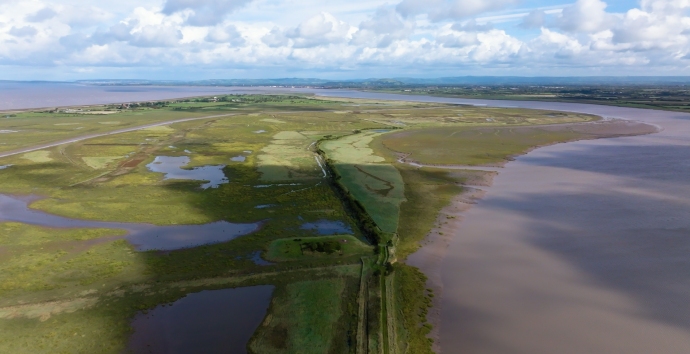A new environmental campaign group says EDF’s plans to create a new salt marsh area are an “ecological disaster in the making.”
The new group – called Protect Pawlett Hams – says it is dedicated to preserving the local landscape from EDF’s proposals to flood wildlife-rich farmland as ‘compensation’ for killing millions of fish at nuclear site.
As Burnham-On-Sea.com reported here, EDF is planning to create a saltmarsh at Pawlett Hams to create a new habitat for fish and animals instead of creating an acoustic fish deterrent system at Hinkley Point C which would stop millions of fish from swimming into the plant’s cooling system and being killed.
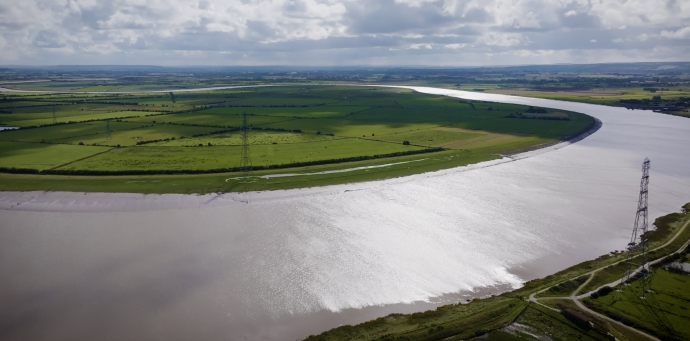
Burnham-On-Sea and Highbridge Town Council has this month raised its concerns over the environmental impact to the Bristol Channel.
A spokesperson for Protect Pawlett Hams, the new campaign group, says: “Pawlett Hams, a precious ecosystem and a jewel in our local landscape, faces an existential threat. EDF’s plans to flood this vital area with salt water in service of their Hinkley Point C project endangers not just the land itself but the myriad of species that call it home.”
“This isn’t a small change; it’s an ecological disaster in the making, transforming 320 hectares of lush, biodiverse habitat into barren, species-poor salt marshes and tidal mud.”
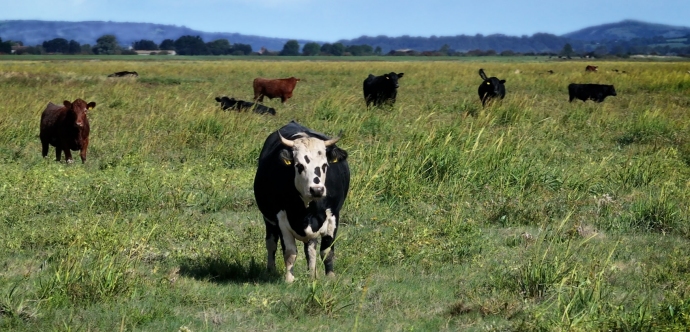
The group’s spokesperson adds: “The introduction of salt water into Pawlett Hams would be catastrophic for the delicate balance of life that has thrived here for centuries.”
“Swans, Lapwings, Redshanks, Otters, Water Voles, Badgers, Foxes, Deer, Yellow Wagtails—each species plays a crucial role in the tapestry of this ecosystem.”
“Salt water would not only destroy their habitats but would irreversibly alter the natural cycles and relationships that have developed over time, leading to the decimation of these populations and leaving behind a comparably desolate landscape.”
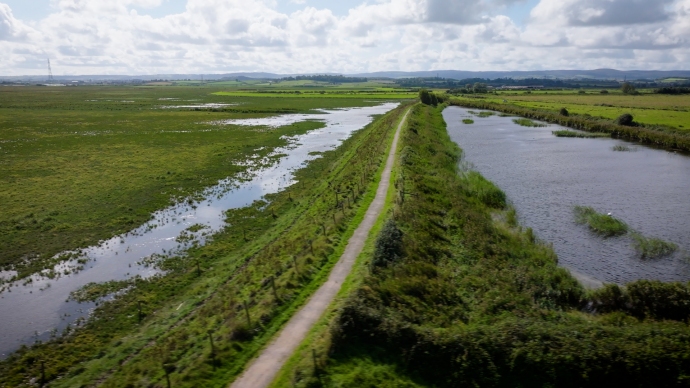
“We refuse to stand by as this disaster unfolds. Our campaign aims to halt EDF’s destructive saltwater flooding plans and advocate for alternative solutions that preserve Pawlett Hams’ ecological integrity. We need your voice, your energy, and your commitment to save this priceless natural asset.”
The Hinkley Point consultation web page is here and it closes on February 29th.
Protect Pawlett Hams says its goal is to inform and empower local people on how they can make a difference and oppose this destructive plan. “Your support is crucial in this fight, and our collective actions can bring about positive change. Let’s stand together and defend what matters most to us – our home and our environment.”
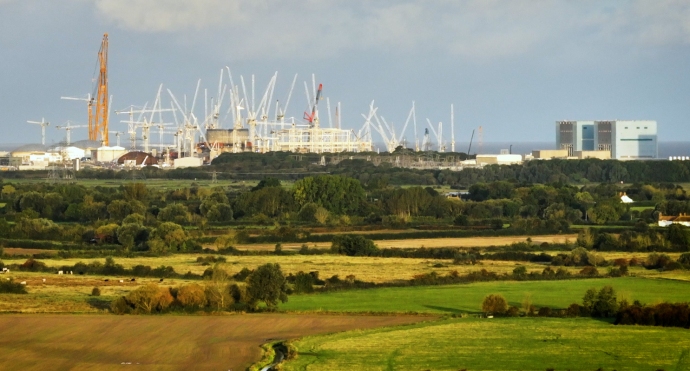
In the consultation overview document, NNB Generation Company (HPC), the EDF subsidiary set up to build and operate Hinkley Point C, says there are no examples of acoustic fish deterrent systems being installed permanently in the “harsh conditions” found in this part of the Bristol Channel. It adds at the time of the original application, AFD systems were regarded as “emerging best practice” but it had now decided that having to use divers made it an “intolerable and unjustifiable” risk.
The consultation document claims the new salt marsh would provide an excellent habitat for flora such as sea lavender, glasswort and marsh mallow and for birds like redshank and curlew. It would also provide foraging ground for some, but not all, of the fish species affected.
Chris Fayers, Head of Environment at Hinkley Point C, adds: “The new wetland would

